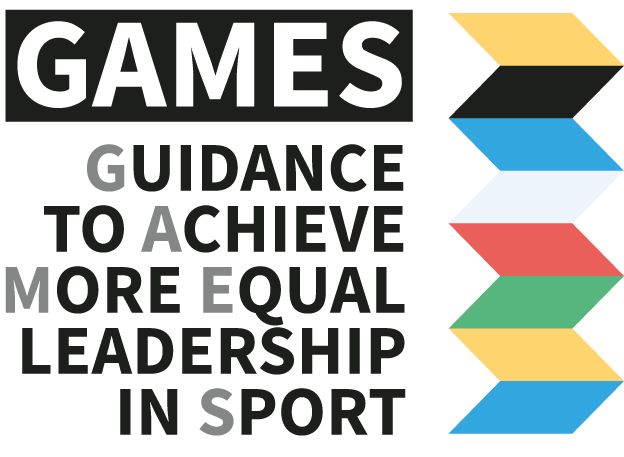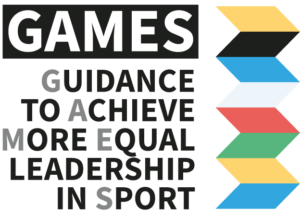The Erasmus+ Programme 2021-2027
Erasmus+ 2021-2027 covers the areas of education, training, youth and sport with the overarching objective to support the educational, professional and personal development of youth, people in sport, education and training through lifelong learning in Europe and beyond.
The Erasmus+ programme is structured in key actions and sport proposals are eligible across all three Key Actions.
• Key Action 1. This is designed to promote learning opportunities for individuals of all ages through study, traineeships, training and professional experience, as well as youth-led national and transnational/educational initiatives. In 2023, the big novelty is the inclusion of the “Mobility Project in the field of Sport” under Key Action 1 which provide the staff of sport organisations, primarily in grassroots sport, with the opportunity to improve their competencies, and qualifications and to acquire new skills through learning mobility by spending a period abroad; and yet, this will be further presented in the upcoming slides.
• Key Action 2. This is designed to promote cooperation among organisations and institutions through partnerships within and across sectors boosting capacity building, networking, as well as peer learning opportunities and exchange of best practice. Notably, the majority of the calls relevant for sport are listed under Key Action 2 being: Partnerships for Cooperation (Cooperation Partnerships and Small Scale Cooperation Partnerships), Not-For-Profit European Sport Events and the Capacity-building in the field of sport.
• Key Action 3. This supports policy dialogue, cooperation and development of new policies in the realm of education and training, sport and youth, as well as creates networks to promote cross-border partnerships among organisations in the Member States (i.e European Week of Sports, EU Sport Forum).
Erasmus+ Programme: Opportunities for Sport
Key Action 1 – Mobility Project in the Field of Sport. Mobility project in the field of sport aspires to provide the staff of sport organisations, primarily in grassroots sport, with the opportunity to improve their competencies, and qualifications and to acquire new skills through learning mobility by spending a period abroad, thus contributing to the capacity building and development of sport organisations. In this context, sports staff refers to a person involved in the instruction, training and management of a sports team or individual sports people either on a paid basis or on a voluntary basis (i.e administrators, coaches, officials). Accordingly, two set of activities can be organised: job shadowing/observation (up to 14 days) and coaching/training assignments (up to 60 days).
Key Action 2 – Partnerships for Cooperation. Partnerships for Cooperation are expected to contribute to key policy documents including the Work Plan for Sport (2021-2024) or the Council recommendation of health-enhancing physical activity. Accordingly, the sport-specific priorities are:
• Encouraging healthy lifestyles for all
• Promoting integrity and values in sport
• Promoting education in and through sport
• Promoting equality and European values in and through sport
Partnerships for Cooperation in the field of sport include both cooperation partnerships and small-scale cooperation partnerships:
• Cooperation Partnerships provide an opportunity to develop, transfer and implement innovative practices in different topical areas relating to sport and physical activity between various organisations and actors in and outside sport.
• Small-scale Cooperation Partnerships are designed for less experienced organisations and newcomers to the programme as this has simpler administrative requirements. These partnerships support activities with transnational and national level whilst ensuring the European dimension. Activities may include organisations to increase their capacity to operate at transnational level and exchange good practices relating to sport and physical activity.
Key Action 2 - Not-For-Profit European Sport Events. Not-for-profit European Sport Events aim to support volunteering in sport, social inclusion through sport, fight against discrimination in sport, including gender equality and encouraging healthy lifestyles for all. And yet, sport competitions organised by international, European or national sport federations/leagues on a regular basis or professional sport competitions are not eligible for funding. Not-for-profit European sports events include two types of events Europe-wide events (single event in a country) and European local events type I and type II (multiple events in multiple EU countries) which have different requirements in terms of consortium, timeframe and financial elements.
Key Action 2 - Capacity-building in the field of sport. Capacity-building in the field of sport are multilateral partnerships - in particular targeting the Western Balkans (Albania, Bosnia and Herzegovina, Kosovo, Montenegro) - to support grassroots sports activities and policies as a vehicle to promote values as well as an educational tool to promote the personal and social development of individuals and build more cohesive communities.
Hence, the Erasmus+ Programme includes several actions/calls which can further support engagement in recreational activity, physical activity, and volunteer work while undertaking wider issues within society and sports.




